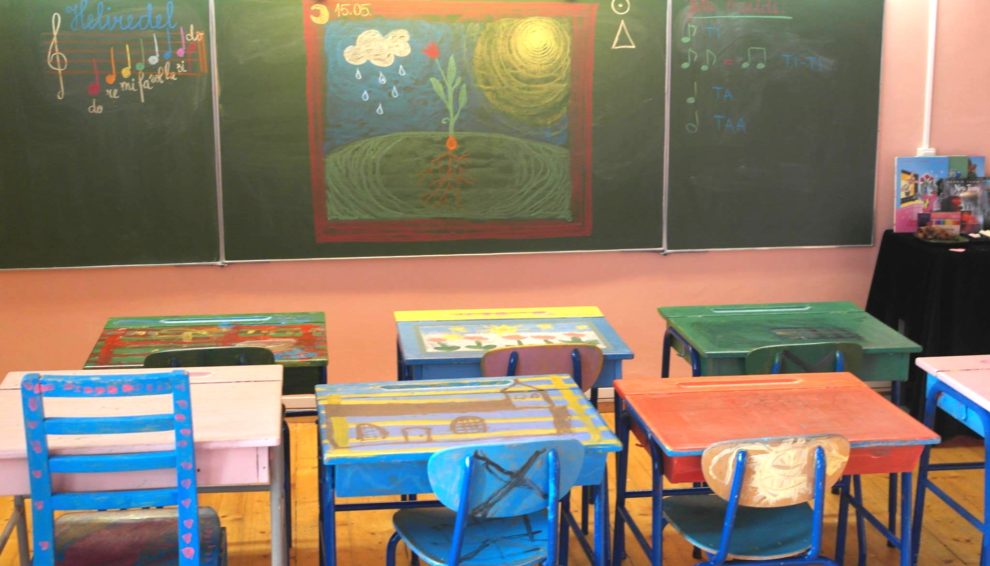
30.10.2018

Anneliis Terep and Pinet Anier are a part of the community founding a school in Viljandi that rests on three pillars: child-friendliness, life-centric learning and sustainable development. Such a school would be the first of its kind in Estonia. Education on sustainable development has a short and sweet abbreviation in Estonian – JAH-education (“jah” meaning “yes” in Estonian, short for “jätkusuutliku arengu haridus”, i.e. “education on sustainable development”).
Anneliis Terep is a methodologist, an expert on didactics and a masterful teacher who has been in all kinds of schools – small community schools, large public schools, alternative education and private schools. Piret Anier, on the other hand, is an architect who later studied education: “I went to study Waldorf education in the University of Tartu because when I studied architecture, they went over everything but the people for whom the spaces are designed.”
Their work began six years ago when the idea for JAH-education was born on the basis of extracurricular education and early childhood education. They found that parents would have a need for small, child-friendly and life-centric schools. At the moment, parents are working on submitting documents for founding the school. The intention is to get approval for the curriculum for grades 1–6 during this year and in the future they intend to develop this further to include the later years of basic school.
Piret explains that in their new school, learning will be based on understanding connections and children’s curiosity. Every child and parent will feel at home in this small and cosy school.
The school has a different format and the classes they offer support the needs of this generation’s children: “We’ll get started with the basics of entrepreneurship from the first year, but instead of talking about earning money, we’ll look at how to be useful for your community, the nature and the world. For example, philosophy classes offer the children an opportunity to look into morals, aesthetics and ethics. Also, it’s not merely theory – the children themselves can ask practical questions and look for answers to their questions,” explains Piret.
All of this is a part of the sustainable lifestyle, summed up by Anneliis in one sentence: “The relationships between society, environment and economy in space and time, so that the future generations and species would could live here.”
Homepage: Oja kool
Photo: Oja Kool
Obtaining a quality education is the foundation to creating sustainable development. In addition to improving quality of life, access to inclusive education can help equip locals with the tools required to develop innovative solutions to the world’s greatest problems.
Over 265 million children are currently out of school and 22% of them are of primary school age. Additionally, even the children who are attending schools are lacking basic skills in reading and math. In the past decade, major progress has been made towards increasing access to education at all levels and increasing enrollment rates in schools particularly for women and girls. Basic literacy skills have improved tremendously, yet bolder efforts are needed to make even greater strides for achieving universal education goals. For example, the world has achieved equality in primary education between girls and boys, but few countries have achieved that target at all levels of education.
The Sustainable Development Goals are the blueprint to achieve a better and more sustainable future for all.
Read more about SDG 4 – Quality Education
This publication has been produced with the financial support from the Nordic Council of Ministers. The content of this publication is the sole responsibility of the coordinators of this project and do not necessarily reflect the views or policies of the Nordic Council of Ministers.
Kommentaarid